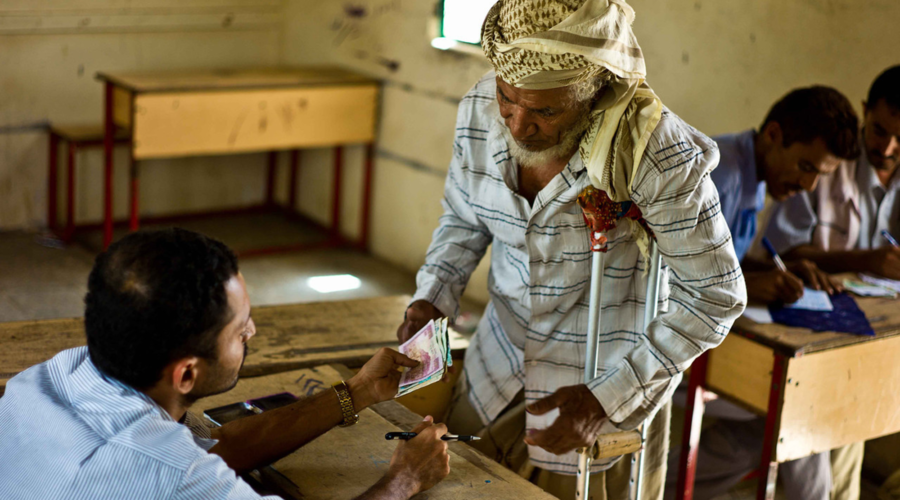Humanitarian organisations are increasingly using cash transfer programmes to meet the needs of people affected by crisis. UN Secretary-General Ban Ki-Moon has called for cash to be “the preferred and default method of support” for humanitarian organisations.The benefits of cash include its’ ease and speed of disbursement, support of local markets, and respect for peoples’ freedom of choice. However, gaps can exist in areas such as protection, gender, monitoring, and targeting of marginalised groups.
Several P2P support missions and OPRs found that considerable work is being done on cash programming globally and locally. WFP, FAO, and many NGOs are making large investments in cash food programmes. UNHCR is refining its biometric platforms to promote the use of cash in urban contexts, while some NGOs are using cash to enhance accountability to affected people.Senior humanitarian experts, including the Resident and Humanitarian Coordinator in Nepal, shared their experience on the use of cash programming. Some of the top tips include:
- Be prepared: Needs and vulnerability analysis should be carried out to understand existing local markets and financial service providers. Pre-identify service providers who can deliver cash quickly, to scale, and in a manner than provides for transparency and accountability. Confirm that local markets function, and where possible use pre-existing cash transfer systems. In Nepal, a well-practiced system of cash transfers supported by migrant workers helped humanitarians set up their cash-based programmes quickly and effectively.
- Be flexible on the type of cash-based assistance: Allow flexibility for organisations and clusters to determine the most appropriate cash programmes for different locations and populations. For example, whilst case studies have shown that digital cash and e-payments are less prone to frauds, this approach can only be used in locations where there is reliable internet access.
Agree on guidelines: Set up clear guidelines for deciding the amount and type of cash support required for different groups. Establish fast track mechanisms to help with dispersals, ensure appropriate feedback mechanisms, and target marginalised groups.



